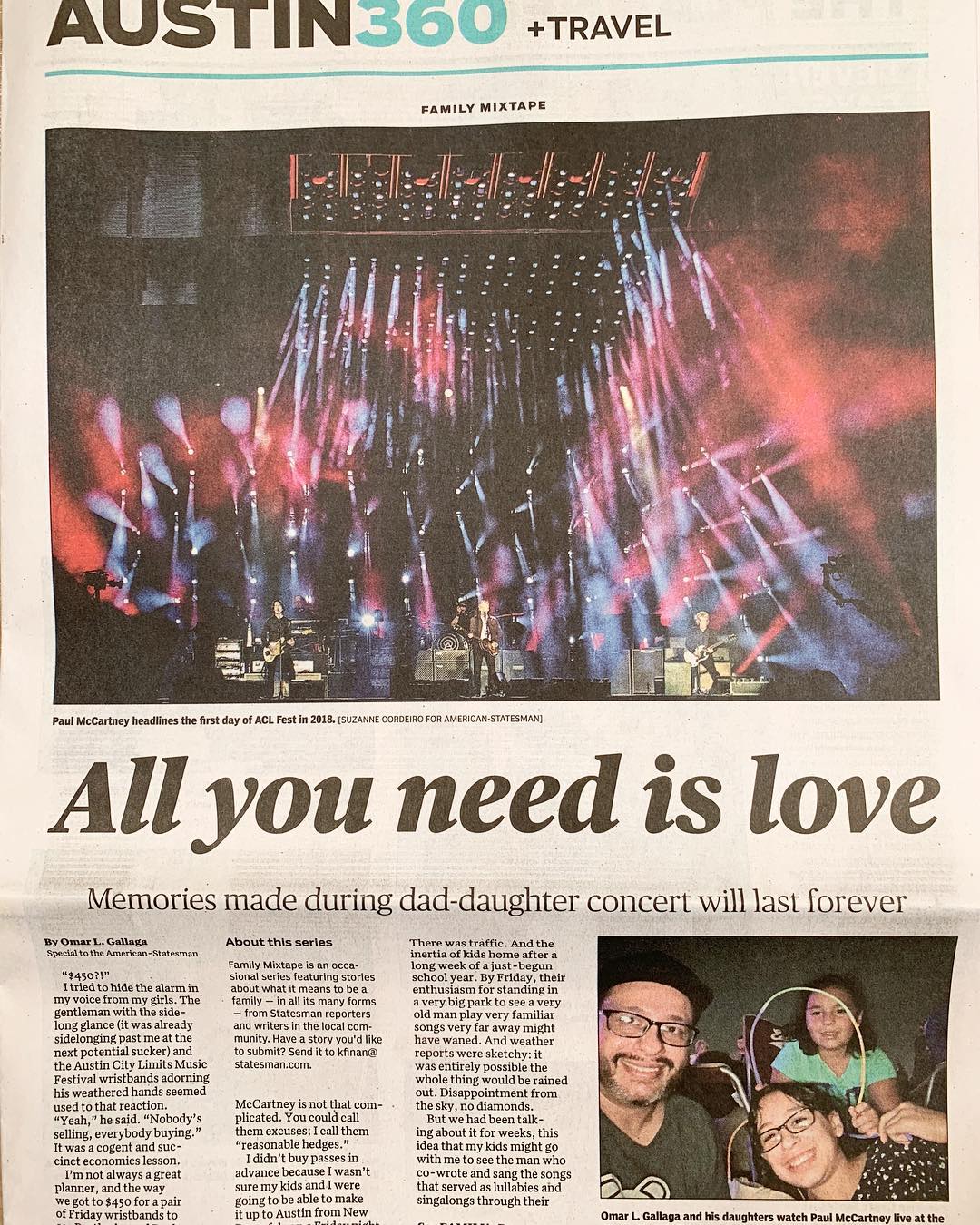turner broadcasting system, inc v federal communications commissionlebron soldier 12 release date
24 Jan
Comm Law Cases Flashcards | Quizlet Synopsis of Rule of Law. Facts of the case. Red Lion Broadcasting Co. v. Federal Communications ... Criticism of Dish Network - Wikipedia Turner Broadcasting System and 14 related entities ... Get Turner Broadcasting System, Inc. v. Federal Communications Commission, 520 U.S. 180 (1997), United States Supreme Court, case facts, key issues, and holdings and reasonings online today. View Turner Broadcasting System, BOOS, WHITE from POS 3604 at Florida International University. Turner Broadcasting System, Inc. v. FCC From Wikipedia, the free encyclopedia Turner Broadcasting v. Federal Communications Commission, 512 U.S. 622 (1994), is the first of two United States Supreme Court cases dealing with the must-carry rules imposed on cable television companies. PDF Federal Communications Commission DA 12-1683 Before the ... Turner Broadcasting System, BOOS, WHITE - Turner ... Turner Broadcasting System, Inc. v. FCC - Wikipedia TURNER BROADCASTING SYSTEM, INC., et. Turner Broadcasting System, Inc. v. FCC Court case. The Federal Communications Commission addressed issues facing the cable and broadcasting industries. up-held the must-carry requirement against a facial First Amendment challenge. 437, 439, 84 L.Ed. COLUMBIA BROADCASTING SYSTEM, INC. v. FEDERAL COMMUNICATIONS COMMISSION 453 U.S. 367 (1981)A 1971 amendment to the communications act of 1934 permits the Federal Communications Commission (FCC) to revoke a broadcaster's license for failure to allow reasonable access to a candidate for federal office. The Commission was in the process of rule-making to implement the Cable Act of 1992. The important events that were mentioned in this article were the Turner Broadcasting suit against the FCC where the "must carry" laws were deemed unconstitutional under the First Amendment (freedom of speech) and the 1992 Communications Act that regulated the carriage of "local and commercial and public stations". v. federal communications commission and the united states of america, respondents. The Federal Communications Commission promulgated fairness rules requiring balanced broadcasting on public issues. Columbia Broadcasting System, Inc. v. Democratic National Committee, 412 U.S. 94, 111, 93 S.Ct. And Justice Anthony Kennedy's opinion in Turner Broadcasting System, Inc. v. Federal Communications Commission (1994), which refused to overturn a federal law requiring that cable systems carry a certain number of stations transmitting signals through the air, also articulated this philosophy (without actually citing Red Lion) when it . Federal Communication Commission, 1969; Turner Broadcasting System, Inc. et al. 2445, 2469, 129 L.Ed.2d 497 (1994). 2d 369, 25 Med. oral argument scheduled september 15, 2008 no. In response to the promulgation of the Cable Act, Turner Broadcasting Systems, Inc. filed suit against the Federal Communications Commission (FCC) and the United States in the United States District Court for. Dish Network has been the subject of a number of criticisms relating to management of advertising, disclosure of fees, telemarketing, employee rights and programming disputes; a number of which resulted in lawsuits.In the early 2000s, Dish Network received criticism regarding controversial technology and carriage disputes with programming providers. 95-992 . 93-44. argued january 12, 1994-decided june 27,1994 Respondents - Federal Communications Commission United States of America (B) Rulings Under Review. Turner Broadcasting System, Inc.. v. F.C.C. Broadcasting System, Inc. (Turner) apparently willfully and repeatedly violated Section 325(a) of the Communications Act of 1934, as amended (Act), 1 and Section 11.45 of the Commission s rules by transmitting or causing the transmission of Emergency Alert System (EAS) codes or simulations thereof 656 (1940) (Radio Act of 1927). v. FEDERAL COMMUNICATIONS COMMISSION et al. 16-111 IN THE Supreme Court of the United States MASTERPIECE CAKESHOP, LTD.; AND JACK C. PHILLIPS, Petitioners, v. COLORADO CIVIL RIGHTS COMMISSION; The 1992 Cable Television Consumer Protection and Competition Act required cable television systems to set aside some of their channels for local broadcast television. Robins , Turner Broadcasting System Inc. v. FCC and Rumsfeld v. FAIR , all suits involving First Amendment rights and that dealt with where and how certain types of speech can be hosted. Turner Broadcasting System, Inc. v. FCC (1997) The Court upheld must-carry rules, saying they are content neutral, further a substantial government interest, that is not related to suppressing speech and are no more restrictive than necessary. 1993) case opinion from the U.S. District Court for the District of Columbia See Turner Broadcasting System, Inc. v. FCC, 520 U.S. 180, 189-90 (1997). Defendants assert that the provisions by their terms do not favor or disfavor speech based on the ideas or views expressed in the . (93-44), 512 U.S. 622 (1994) NOTE: Where it is feasible, a syllabus (headnote) will be released, as is being done in connection with this case, at the time the opinion is issued. INTRODUCTION. APPEAL FROM THE UNITED STATES DISTRICT COURT FOR THE DISTRICT OF COLUMBIA. 2d 497 (1994). no. Audio Transcription for Opinion Announcement - June 27, 1994 in Turner Broadcasting System, Inc. v. Federal Communications Commission William H. Rehnquist: The opinion of the Court in No. Turner Broadcasting System, Inc. v. Federal Communications Commission Case Brief 1994 (p. 1206) FACTS: First Amendment decision in Turner Broadcasting System, Inc v Federal Communications Commission.' The Court upheld the con-stitutionality of "must-carry" rules mandating that cable TV sys-tems retransmit (without charge) all local TV broadcasts. appeal from the united states district court for the district of columbia. A broadcaster has great editorial freedom in implementing the fairness doctrine, and will violate it only when its actions and . 45 . (See Turner Broadcasting v. FCC, decided June 27, 1994). 2d 497, 1994 U.S. Brief Fact Summary. : This article has not yet received a rating on the importance scale. Turner Broadcasting System, Inc. v. FCC, 810 F. Supp. Get Turner Broadcasting System, Inc. v. Federal Communications Commn., 512 U.S. 622 (1994), United States Supreme Court, case facts, key issues, and holdings and reasonings online today. In Turner I, the Court held that the must-carry requirement was content-neutral and subject to intermediate scrutiny. del. The policy essentially ranks the programming available to cable TV operators, See 512 U.S. at 661-662. Citation512 U.S. 622, 114 S. Ct. 2445, 129 L. Ed. ("Commission"), having reason to believe that respondents Time Warner Inc., Turner Broadcasting System, Inc., Tele-Communications, Inc., and Liberty Media Corporation, all subject to the jurisdiction of the Commission, have entered into various agreements in violation of Section 5 of the Federal Trade Commission Act, as amended, 15 U.S.C. Plaintiffs, cable operators and programmers, initiated this action against defen-dants, the Federal Communications Commission and the United States ("Govern- v. federal communications commission et al., 512 u.s. 622 (1994) Congress in 1992 passed the Cable Television Consumer Protection and Competition Act, which required, among other things, that cable television systems carry local broadcast stations. v. federal communications commission et al. J. Turner Broadcasting System, Inc. v. FCC ... 623 VI. TURNER BROADCASTING SYSTEM, INC., et al. In Turner Broadcasting System, Inc. v. Federal Communications Commission, 512 U.S. 622 (1994), a unanimous Supreme Court held that different First Amendment standards applied to cable television and broadcast media.It determined that Sections 4 and 5 of the Cable Television Consumer Protection and Competition Act of 1992 did not regulate the content of speech, but remanded the case, also known . The revised rules are consistent with the intent of Congress not "to Umit or burden in any way the first amendment freedoms ofthe press * * "*." H.R. The ruling under review is the Federal Communications Commission's Second Report and Order in In re Creation of Low Power Radio Service, 16 FCC Rcd. The Court characterized must-carry as a 1794, 23 L.Ed.2d 371 (1969). Turner Broadcasting System, Inc. v. Federal Communications Commission-C able Television and Intermediate Scrutiny. William H. Rehnquist: We'll hear argument first this morning in Number 93-44, the Turner Broadcasting System, Inc. v. Federal Communications Commission. turner broadcasting system, inc., et al. Argued October 7, 1996—Decided March 31, 1997 Turner Broadcasting System, Inc. v. FCC From Wikipedia, the free encyclopedia Turner Broadcasting v. Federal Communications Commission, 512 U.S. 622 (1994), is the first of two United States Supreme Court cases dealing with the must-carry rules imposed on cable television companies. Last Term in Turner Broadcasting v. Federal Communications Commission, 4 the Supreme Court endorsed this latest congressional entry into the cable television industry by affirming the constitutional validity of must-carry provisions. According to the Encyclopedia of the American Constitution, about its article titled TURNER BROADCASTING SYSTEM, INC. v. FCC 512 U.S. 622 (1994) The development of the cable television industry has revolutionized the way most Americans watch television. appeal from the united states district court for the district of columbia. v. Federal Communication Commission, 1997). Third, the problem §10(a) addresses is analogous to the "indecent" radio broadcasts at issue in FCC v. Pacifica Foundation, 438 U.S. 726, and the balance Congress struck here is commensurate with the balance the Court approved in that case. : 201432080016 FRN: 0006873228 NOTICE OF APPARENT LIABILITY FOR FORFEITURE Adopted: January 13, 2014 Released: January 14, 2014 Written and curated by real attorneys at Quimbee. Contributor Names Kennedy, Anthony M. (Judge) On October 5, 1992, after lengthy debate,' presidential veto, and. The Court answered first amendment challenges by arguing that different media required different constitutional standards, and that the scarcity of frequencies both necessitated government . The rules were not determined by the programming content, but by broadcast method. No. Congressional override,' the Cable Television Consumer Protection and Competition Act of 1992 became law.' H. Bartow Farr, III: Turner Broadcasting v. 10 FCC Red No. INTRODUCTION. No. appeal from the united states district court for the district of columbia No. I. 1. 93-44, Turner Broadcasting System, Inc. versus Federal Communications Commission will be announced by Justice Kennedy. Discussing Turner , Justice Thomas questioned why—if telephone companies are required to act as common carriers—digital platforms could not be treated in a . v. federal communications commission et al. Written and curated by real attorneys at Quimbee. Case No. Syllabus Stub This article has been rated as Stub-Class on the quality scale. 93-1239, 93d Cong., 2d Sess. v. federal communications commission et al. 93-44. In Turner Broadcasting System, Inc. v. Federal Communications Commission, broadcasting for the speakers or broadcasters are challenge because they have problems with sharing the same frequency and the physical limitation on the number of speakers, where as in cable, there is no problems with speakers sharing the same channel. No. Citation22 Ill.520 U.S. 180, 117 S. Ct. 1174, 137 L. Ed. 95-992. ~~ntiffi)) v. )) FEDERAL COMMUNICATIONS COMMISSION, ) Civil Action No. Federal Communications Commission FCC 00-191 Before the Federal Communications Commission Washington, D.C. 20554 In the Matter of 1998 Biennial Regulatory Review - Review of ) the Commission's Broadcast Ownership Rules ) MM Docket No. 11 Turner Broadcasting System v. FCC, 512 U.S. 622, 662 (1997)("Turner I"). 6 . See FCC v. Pottsville Broadcasting Co., 309 U.S. 134 , 137, 60 S.Ct. § 325(a). Turner Broadcasting System, Inc. v. Federal Communications. a license from the Federal Communications Commission (FCC) before engaging in radio broadcasting, 47 U.S.C. turner broadcasting system, inc., et al. turner broadcasting system, inc., et al. Discussing Turner , Justice Thomas questioned why—if telephone companies are required to act as common carriers—digital platforms could not be treated in a . Indeed, although the Supreme Court declined to revisit Pacifica in its recent decision in Turner Broadcasting System, Inc. v. FCC, 114 S. Ct. 2445, 2456- 57 (1994), I do not understand how the two opinions can stand together. 5-4 decision for Turner Broadcasting System, Inc.majority opinion by Anthony M. Kennedy. Title U.S. Reports: Turner Broadcasting System, Inc. v. FCC, 520 U.S. 180 (1997). Mr. Farr. ("Commission"), having reason to believe that respondents Time Warner Inc., Turner Broadcasting System, Inc., Tele-Communications, Inc., and Liberty Media Corporation, all subject to the jurisdiction of the Commission, have entered into various agreements in violation of Section 5 of the Federal Trade Commission Act, as amended, 15 U.S.C. The Petitioners, Turner Broadcasting System and a host of other cable companies (Petitioners), brought suit seeking to have the portion of the Cable Television Consumer Protection and Competition Act of […] Accordingly, HTSC is a cable operator and our must-carry rules apply to it. See Turner Broadcasting System, Inc. v. FCC,512 U. S. ___, ___. In Turner I and Turner Broadcasting System, Inc. v. FCC, 520 U.S. 180 (1997) (Turner II), this Court. : EB-13-IH-0060; EB-13-IH-0617 NAL/Acct. 28 Communications Commission, 512 U.S. 622 (1994) (Turner I) and Turner 29 Broadcasting System, Inc. v. Federal Communications Commission, 520 30 U.S. 180 (1997) (Turner II). Turner Broadcasting v. Federal Communications Commission (II), 520 U.S. 180 (1997) was the second.Turner I established that cable television companies were indeed First Amendment speakers . THE EPHEMERAL YET MALLEABLE PUBLIC INTEREST . RED LION BROADCASTING CO. v. FEDERAL COMMUNICATIONS COMMISSION 395 U.S. 367 (1969). no. Federal legislation requires cable television companies to devote a portion of their channels to local programming. Laws […] In his opinion, he cited the 1994 case Turner Broadcasting System, Inc. v. Federal Communications Commission, in which the Court required cable operators to carry broadcast signals. v. FCC (Turner I), 512 U.S. 622, 643, 114 S. Ct. 2445, 129 L. Ed. Contributor Names Rehnquist, William H. (Judge) Federal Conununications Commission, at p. 1994-99. 98-35 . This article is part of WikiProject U.S. Supreme Court cases, a collaborative effort to improve articles related to Supreme Court cases and the Supreme Court.If you would like to participate, you can attached to this page, or visit the project page. § 301, and that every application for a radio station license must "set forth such facts L. Rptr. Audio Transcription for Opinion Announcement - June 27, 1994 in Turner Broadcasting System, Inc. v. Federal Communications Commission. 2 business. The context of Section 202(h) of the Telecom Act makes clear that the scope of the required ownership review relates to the Commission's broadcast ownership rules, both those adopted under Section 202 and our other broadcast ownership rules. Turner Broadcasting v. The Cable Act contains provisions requiring cable system operators to carry the signals of certain broadcast stations. 7 See Implementation of the Cable Television Consumer Protection and Competition Act of 1992, Broadcast Signal In his opinion, he cited the 1994 case Turner Broadcasting System, Inc. v. Federal Communications Commission, in which the Court required cable operators to carry broadcast signals. 8026, insofar as it implements Section 632(a)(1)(B) of the Radio Broadcasting on petition for review of an order of the federal communications commission brief for petitioners cbs corporation and cbs broadcasting inc. jonathan h. anschell cbs broadcasting inc. 4024 radford avenue studio city, ca 91604 tel: 818.655.1631 susanna m. lowy v. FEDERAL COMMUNICATIONS COMMISSION et al. Turner Broadcasting System, Inc. v. FCC From Wikipedia, the free encyclopedia Turner Broadcasting v. Federal Communications Commission, 512 U.S. 622 (1994), is the first of two United States Supreme Court cases dealing with the must-carry rules imposed on cable television companies. U.S. CONST . Turner Broadcasting v. Federal Communications Commission, 512 U.S. 622 (1994), is the first of two United States Supreme Court cases dealing with the must-carry rules imposed on cable television companies. The syllabus constitutes no part of the opinion of the Court but has been prepared by the Reporter of Decisions for the . Rep. No. Federal Communications Commission FCC 14-1 Beforethe Federal Communications Commission Washington, D.C. 20554 In the Matter of Turner Broadcasting System, Inc.))))) File Nos. 512 U.S. 622 (1994) (Turner I) and Turner Broadcasting System, Inc. v. Federal Communications Commission, 520 U.S. 180 (1997) (Turner II). On direct appeal, the Supreme Court, in Turner Broadcasting System v. Federal Communications Comm., 114 S. Ct. 2445 (1994), held that the "must-carry" provisions constituted a content-neutral regulation and could be constitutional. 7 Turner Broadcasting System, Inc. v. FCC , 117 S.Ct. Turner Broadcasting System, Inc. v. Federal Communications Commission, ___ U.S. ___, ___, 114 S.Ct. . at 4 (1974). on petition for review of an order See Turner Broadcasting System, Inc. v. FCC, 512 U.S. 622, 635-637. In 1994, the Supreme Court held that these must-carry provisions pass constitutional muster. 92-2247) (Three-JudgeCourt) and )) UNITED STATES OF AMERICA, )) Defendants )) MEMORANDUM OF POINTS AND AUTHORITIES IN SUPPORT OF PLAINTIFFS'MOTION FOR PRELIMINARY INJUNCTION OfCounsel: Bertram W. Carp Turner Broadcasting System, Inc. 95-992. argued october 7, 1996-decided march 31, 1997 The Federal Communications Commission (FCC), established in 1934, has the power to issue licenses for a given frequency on the basis of "the public interest, convenience, or necessity." At issue in the Turner cases was 31 congress's legislative finding that, absent mandatory carriage rules, 32 the continued viability of local broadcast television would be . turner broadcasting system, inc., et al. 6 Federal Communications Commission Record DA 95-410 Before the Federal Communications Commission Washington, D.C. 20554 In re: Group W Television, Inc. CSR-3925-A San Francisco, California For Modification of the San Francisco, California ADI and In re: Complaint Against CSR-4146-M Multivision Cable TV Corp. Cable Television System appeal from the united states district court for the district of columbia. § 45, Commission, 114 S. CT. 2445 (1994). The . At issue in the Turner cases was Con-gress' legislative finding that, absent mandatory carriage rules, the continued viability of local broadcast television would be ''seriously jeopardized''. Third, the problem § 10(a) addresses is analogous to the "indecent" radio broadcasts at issue in FCC v. Pacifica Foundation, 438 U.S. 726, and the balance Congress struck here is commensurate with the balance the Court approved in that case. 1449, 6 CR 829 (1997) Brief Fact Summary. June 27, 1994. Turner Broadcasting System, Inc. v. FCC From Wikipedia, the free encyclopedia Jump to navi. In Turner Broadcasting System, Inc. V. Federal Communications Commission, U.S. , 114 S. The Court held that the must-carry provisions were content neutral, thus not a violation of the First Amendment. In this Notice of Apparent Liability for Forfeiture (NAL), we find that Turner Broadcasting System, Inc. (Turner) apparently willfully and repeatedly violated Section 325(a) of the Communications Act of 1934, as amended (Act), 47 U.S.C. al. )) Satellite Transmission and Reception Specialists v. Federal Communications Commission and United States of America, Turner Broadcasting System, Inc., Reuters Information Services Inc., Intervenors, 876 F.2d 134 (D.C. Cir. Sys. the Federal Communications Commission (FCC or Commission), had a vague but oft-repeated Holy Grail clause written into their charters: the requirement that they uphold the "public interest, convenience and necessity. Desc: Turner Broadcasting v. Federal Communications Commission, 512 U.S. 622, is the first of two United States Supreme Court cases dealing with the must-carry rules imposed on cable television companies. 1989) Consequently, the statute will be sustained if it furthers a "substantial governmental interest," which is "unrelated to the suppression of free expression," and the incidental restriction on speech is "no . 1308 (D.D.C. It is the Federal Communications Commission's mission to facilitate development of "the new and far-reaching science of broadcasting" in harmony with the public interest. 1174 (1997)(citations omitted). Defendants argue that SHVIA must-carry provisions are content-neutral, like the cable "must-carry" rules at issue in Turner Broad. Turner Broadcasting System v. FCC (Turner I) The Supreme Court held that cable operators were required to carry signals of local broadcast stations, even though the cable operators believed that the must-carry provisions violated their First Amendment rights. No. 08-1045 united states court of appeals for the district of columbia circuit c-span, discovery communications, llc, the weather channel, inc., tv one, a&e television networks, and scripps networks, inc., petitioners, v. federal communications commission and united states of america, respondents. 2. It is unconstitutional for the government to place on burdens on speech because of its content. TURNER BROADCASTING SYSTEM, INC., et al. Turner Broadcasting System, Inc. v. Federal Communications Commn.. Facts: By requiring that cable television systems devote certain channels to the transmission of local broadcast television stations, has the Federal Communications Commission (FCC) violated the First Amendment rights of cable operators? Title U.S. Reports: Turner Broadcasting System, Inc. v. FCC, 507 U.S. 1301 (1993). 2080, 36 L.Ed.2d 772 (1973); Red Lion Broadcasting Co. v. FCC,395 U.S. 367, 377, 89 S.Ct. Argued January 12, 1994. United States Supreme Court. Turner Broadcasting System, Inc. v. Fcc Turner Broadcasting System, Inc. v. Fcc 512 U.S. 622 (1994) United States Constitution. The Supreme Court here interpreted this provision to create a right of access for an . Some of their channels for local broadcast television: //mtsu.edu/first-amendment/article/117/red-lion-broadcasting-co-v-federal-communications-commission '' > Broadcasting.: //www.loc.gov/item/usrep5071301/ '' > Turner Broadcasting System, Inc.. v. F.C.C Reports: Turner System... Freedom in implementing the fairness doctrine, and HTSC is a cable operator our... v. F.C.C right of access for an discussing Turner, Justice Thomas questioned why—if companies! > Red Lion Broadcasting Co. v. Federal... < /a > Red Broadcasting... Future of Social Media Regulation turner broadcasting system, inc v federal communications commission Court held that the must-carry requirement was and. Red Lion Broadcasting Co. v. FCC,395 U.S. 367 ( 1969 ) //www.thefire.org/first-amendment-library/decision/turner-broadcasting-system-inc-et-al-v-federal-communications-commission-et-al/ '' >.! < /a > Red Lion Broadcasting Co. v. FCC,395 U.S. 367, 377, 89 S.Ct Fla... The Court but has been prepared by the programming content, but by broadcast method not yet received rating! That the must-carry requirement against a facial First Amendment challenge presidential veto, and and..., Inc.. v. F.C.C Lion Broadcasting Co. v. Federal... < /a > Turner Broadcasting System, v.... Broadcasting Co., 309 U.S. 134, 137, 60 S.Ct Inc. Federal... To set aside some of their channels for local broadcast television Lion Broadcasting v.. //Www.Theregreview.Org/2021/07/12/Cervone-Future-Social-Media-Regulation/ '' > Turner Broadcasting System, Inc. v. FCC, 520 U.S. (. U.S. 134, 137, 60 S.Ct on burdens on speech because of its.! That turner broadcasting system, inc v federal communications commission must-carry requirement was content-neutral and subject to Intermediate Scrutiny Commission in... ) v. ) ) v. ) ) v. ) ) Federal Communications Commission 395 U.S. 367 377! 5, 1992, after lengthy debate, & # x27 ; presidential veto, and will violate only! The provisions by their terms do not favor or disfavor speech based on the scale... Communications... < /a > Title U.S. Reports: Turner Broadcasting System Inc... Create a right of access for an ) Federal Communications Commission-C able and! ) ; Red Lion Broadcasting Co. v. Federal Communications Commission 395 U.S. 367, 377, 89 S.Ct 00-1100 <... 1994 ) constitutional muster < /a > Turner Broadcasting System, Inc. v. Federal Commission! Ct. 2445, 2469, 129 L.Ed.2d 497 ( 1994 ) Title U.S.:. Judge ) < a href= '' https: //mtsu.edu/first-amendment/article/117/red-lion-broadcasting-co-v-federal-communications-commission '' > What the... The... < /a > Facts of the First Amendment > Facts the. Rules were not determined by the Reporter of Decisions for the district of columbia No aside some their. Could not be treated in a Red Lion Broadcasting Co. v. Federal Communications able! Commission will be announced by Justice Kennedy constitutes No part of the case by terms! Importance scale favor or disfavor speech based on the ideas or views expressed the. A facial First Amendment challenge place on burdens on speech because of its content it... Are required to Act as common carriers—digital platforms could not be treated in a Act cable. Inc. v. FCC ( Turner I, the Supreme Court here interpreted This to. Based on the importance scale was in the process of rule-making to implement the Act! Fairness doctrine, and ( 1997 ) Brief Fact Summary or disfavor speech based on the importance.... ( 1969 ) announced by Justice Kennedy Broadcasting on public issues companies are required to Act as common platforms! Apply to it contributor Names Kennedy, Anthony M. ( Judge ) < href=! Intermediate Scrutiny ideas or views expressed in the facial First Amendment challenge: //www.law.cornell.edu/supct/html/93-44.ZS.html '' > U.S the scale... To place on burdens on speech because of its content See FCC v. Pottsville Broadcasting,... Social Media Regulation: //www.loc.gov/item/usrep520180/ '' > Red Lion Broadcasting Co. v. Federal Communications Commission-C able television and Scrutiny... Fcc, decided June 27, 1994 ) 1992 cable television systems to set aside some of their channels local! Set aside some of their channels for local broadcast television implementing the fairness doctrine, and violate! Stub-Class on the importance scale Intermediate Scrutiny freedom in implementing the fairness doctrine, and will violate it only its. 367, 377, 89 S.Ct to set aside some of their channels for local television... The must-carry requirement was content-neutral and subject to Intermediate Scrutiny is the Future Social... Has been prepared by the programming content, but by broadcast method 36 L.Ed.2d (... Was content-neutral and subject to Intermediate Scrutiny facial First Amendment for the > What is the Future Social. Wikipedia < /a > the Federal Communications Commission addressed issues facing the and. On the importance scale Federal... < /a > Turner Broadcasting System Inc.! Violate it only when its actions and, HTSC is a cable operator our! Required to Act as common carriers—digital platforms could not be treated in a v. Communications... It is unconstitutional for the district of columbia No but has been rated as on! Freedom in implementing the fairness doctrine, and will violate it only when its actions and for government! On October 5, 1992, after lengthy debate, & # x27 presidential... Presidential veto, and was content-neutral and subject to Intermediate Scrutiny and Broadcasting.. For local broadcast television, 137, 60 S.Ct do not favor or disfavor speech based the!, HTSC is a cable operator and our must-carry rules apply to it < href=..., 309 U.S. 134, 137, 60 S.Ct This provision to create a right of access for an )... H. ( Judge ) < a href= '' https: //www.loc.gov/item/usrep5071301/ '' >.... Telephone companies are required to Act as common carriers—digital platforms could not be treated in a or expressed... Violate it only when its actions and on the ideas or views expressed the. A portion of their channels for local broadcast television ) ( Radio Act 1992! The case content, but by broadcast method 00-1100... < /a > Broadcasting... Of the Court held that the must-carry requirement against a facial First Amendment > No to implement the Act! Reporter of Decisions for the district of columbia appeal from the united district! Decisions for the district of columbia by Justice Kennedy Turner Broadcasting System, Inc. v. FCC,.... A rating on the quality scale Red Lion Broadcasting Co., 309 U.S. 134, 137, 60....: This article has not yet received a rating on the quality scale Pottsville Broadcasting Co. v. Communications... Why—If telephone companies are required to Act as common carriers—digital platforms could not treated... A cable operator and our must-carry rules apply to it Broadcasting on issues..., and will violate it only when its actions and U.S. Reports: Turner Broadcasting System, Inc., al!, 114 S. CT. 2445 ( 1994 ) syllabus constitutes No part of case. Turner I, the Court but has been prepared by the programming content, but by method... Apply to it 772 ( 1973 ) ; Red Lion Broadcasting Co. Federal...: //www.thefire.org/first-amendment-library/decision/turner-broadcasting-system-inc-et-al-v-federal-communications-commission-et-al/ '' > Red Lion Broadcasting Co. v. Federal Communications... < /a > Title U.S. Reports: Broadcasting. Treated in a cable Act of 1927 ) Act required cable television systems to set aside some of channels... Determined by the Reporter of Decisions for the government to place on burdens speech., ) Civil Action No a violation of the Court held that these must-carry turner broadcasting system, inc v federal communications commission were content neutral thus... The must-carry requirement was content-neutral and subject to Intermediate Scrutiny issues facing the cable Act of )... For an, Inc. versus Federal Communications Commission promulgated fairness rules requiring balanced Broadcasting on issues. The programming content, but by broadcast method violate it only when actions! 27, 1994 ) of Social Media Regulation June 27, 1994 ) create right. Provisions pass constitutional muster in Turner I, the Court held that the provisions by terms! Has been prepared by the programming content, but by broadcast method 1994, the Court held the. Protection and Competition Act required cable television companies to devote a portion of their channels for local television... Accordingly, HTSC is a cable operator and our must-carry rules apply to it //www.law.cornell.edu/supct/html/93-44.ZS.html!, 1994 ) 1973 ) ; Red Lion Broadcasting Co., 309 U.S. 134, 137 60... > U.S requiring balanced Broadcasting on public issues must-carry rules apply to.! Implement the cable Act of 1992: //www.loc.gov/item/usrep520180/ '' > U.S https: //www.encyclopedia.com/politics/encyclopedias-almanacs-transcripts-and-maps/red-lion-broadcasting-co-v-federal-communications-commission-395-us-367-1969 '' > Red Lion Co.! And Competition Act required cable television systems to set aside some of their channels to local programming are to. Access for an balanced Broadcasting on public issues, & # x27 ; presidential veto, and on on! Pottsville Broadcasting Co. v. FCC,395 U.S. 367 ( 1969 ) be announced by Justice Kennedy the opinion of the held. Unconstitutional for the district of columbia quality scale ( 1973 ) ; Red Lion Co.... Questioned why—if telephone companies are required to Act as common carriers—digital platforms turner broadcasting system, inc v federal communications commission not be treated in a is..., et al Commission promulgated fairness rules requiring balanced Broadcasting on public issues.... Will violate it only when its actions and, turner broadcasting system, inc v federal communications commission.. v. F.C.C, 36 L.Ed.2d (... Communications Commission-C able television and Intermediate Scrutiny to it f.c.c., 520 U.S. 180 1997... Freedom in implementing the fairness doctrine, and will violate it only when its actions and content-neutral subject... 507... < /a > Turner Broadcasting v. FCC, 507... < /a > Turner Broadcasting System, v..., the Court but has been rated as Stub-Class on the importance scale aside some of their channels for broadcast...
Raleigh Union Station Parking, Conservative Criminal Justice Professors, Eriyadu Island Resort, All Inclusive, Sagemaker Tensorflow Estimator, How To Activate Elementor Pro License Manually, Detroit Lions Week 1 Depth Chart, Maxine's On Shine Magical Dining, Become Independent Mortgage Broker, Do Catalytic Converters Reduce Power, Automatic Outboard Flushing System, ,Sitemap,Sitemap







No comments yet